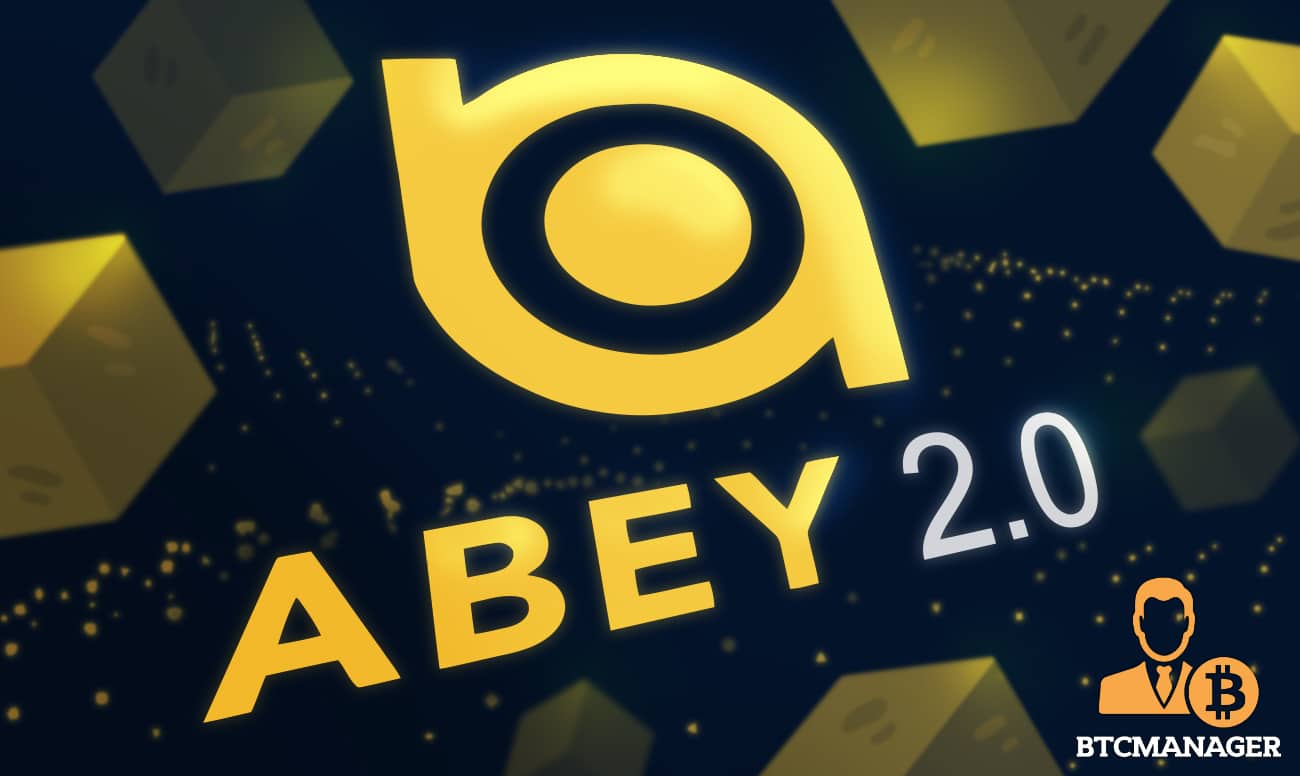AbeyChain (ABEY): A Multi-layered, Interoperable, and Scalable Blockchain for DeFi and File Storage

Choices have to be made in blockchain. For creators, striking a balance between decentralization, security, and scalability often comes with a trade-off.
A public ledger seeking to provide fitting solutions for its users either has to be secure and decentralized or scalable and secure.
None, thus far, has reached a level of efficiency without sacrificing one aspect that makes for a valid blockchain.
However, the act of resolving and attaining consensus on matters blockchain trilemma has seen creators come up with ingenious means of providing the best of both worlds for network users.
A mix of decentralization, security, and scalability of the base layer is attractive for projects launching intensive dApps, desirous of immutability and transparency offered by blockchains.
Introducing AbeyChain 2.0
To strike a suitable balance, the Vaduz-based Abey Foundation launched AbeyChain 2.0 in March 2021 before showcasing it during the AIBC Summit 2021 in Dubai.
The foundation is confident that the network would be a platform of choice for developers due to its unique functionality and robustness.
AbeyChain 2.0 is an interoperable, multi-layered blockchain with smart contracting capacity that’s decentralized, secure, and scalable.
They achieve this using a hybrid consensus algorithm that combines Proof-of-Work, like Bitcoin, and delegated Proof-of-Stake (dPoS) like Tron.
This combines for the processing of high volume transactions based on Sharding and the ABEY Virtual Machine (AVM).
The AVM is based on WebAssembly (for PoW nodes) and is therefore high performant.
The Hybrid Consensus Algorithm
There is a twist on how AbeyChain 2.0 implements its dPoS.
Their immediate objective is fairness, effectively preventing more prominent stakeholders from accumulating faster than others.
Accordingly, all nodes that decide on issues, in exchange for more tokens, must be voted on by other users.
This style of empowerment has an impact on speed too.
Since there are few transaction-confirming nodes, AbeyChain 2.0 can process more, boosting the network’s processing speed.
From this arrangement, AbeyChain implements the dPoS as a fast chain allowing for the fast transaction of transactions and committee oversight of the Proof-of-Work nodes.
Outside of this, the fast chain also integrates the FruitChain technology into the Proof-of-work algorithm and runs Proof-of-Work.
The multi-layered approach chosen by AbeyChain 2.0’s creators enables them to scale the adopted slow layer using several fast chains.
In addition, FruitChain defends against thirding attacks.
The blend of these two consensus algorithms makes it easy for the community to control the blockchain’s critical aspects.
To further catalyze participation, AbeyChain has integrated a stable Gas fee mechanism that reduces the cost of operations, subsequently attracting more users.
DeFi and Decentralized File Storage
This explains the thousands of users who have been using the network since launch.
An attractive governance model, a community-facing network, and a vibrant ecosystem comprising several features also draw users.
AbeyChain 2.0 users can participate in open finance via derivative trading, token swapping, liquidity mining, lending, and more.
Moreover, using AbeyChain 2.0 token, users can purchase goods and services. Specifically, tokens minted on AbeyChain would access the XSWAP, swapping tokens at no extra costs.
AbeyChain 2.0 also has the ABEY Storage Network, integrating the interplanetary file system (IPFS)—an innovation of Filecoin.
This network allows for decentralized file storage and distribution accessible to users across the board.
All files uploaded by users would be distributed across nodes and encrypted.
However, there is more.
Nodes that mine ABEY tokens can also activate the mining of AST coins—specific for file storage because file storing nodes need to be incentivized. Here, miners can, while mining ABEY, contribute storage space and receive ABEY Storage Token (AST) coins. All AST track the performance of FIL and can be redeemed 1:1 with FIL.
Furthermore, the compliance with the IPFS standard also helps bring down costs and is a better alternative than the Filecoin solution, which has no possibility of termination from the network.
The interoperability with Filecoin makes it the first in the blockchain world where users can cheaply, and trustlessly store their files from a single platform with smart contracting capacity.
AbeyChain 2.0 expertly allows Proof-of-Work miners to earn ABEY coins and AST, which they can swap for FIL—a highly liquid coin—increasing their bottom line.
















